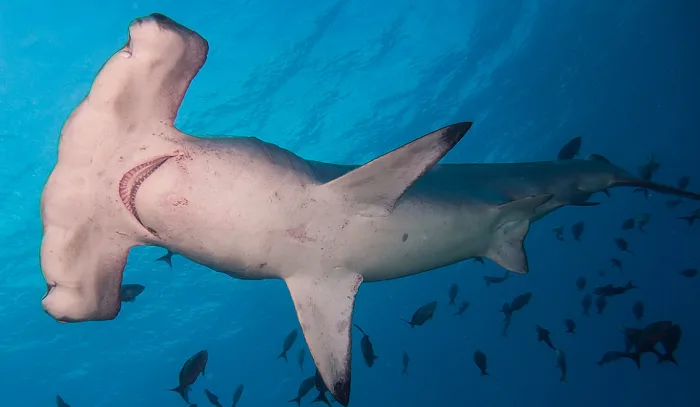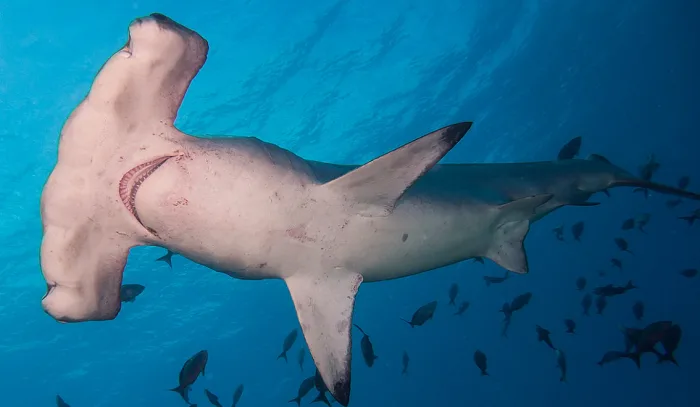
Study finds overfishing has led to devastating global decline of sharks, rays
The global study paints a dire picture for the future of shark and ray species.
Over the past 50 years overfishing has decimated some shark and rays, wiping out more than 70 per cent of some populations, according to a study published last month in the journal Nature.
In some areas, like southern Mozambique, manta and devil ray sightings decreased by more than 90 per cent between 2003 and 2016. Whitetip sharks have been among the hardest hit, with a 98 per cent population drop in the last sixty years due to overfishing.
Study lead author Nathan Pacoureau told AFP (via RFI) the findings "stunned" researchers into "silence."
"We knew the situation was bad in a lot of places but that information came from different studies and reports, so it was difficult to have an idea of the global situation," Pacoureau told the agency.
"We show steep declines and a rapidly rising extinction risk for the most wide-ranging species in the largest, most remote habitats on the earth, which are often assumed to be protected from human influence."
The project was a global effort, led by a consortium of conservation experts. The aim was to analyze global extinction risks for oceanic sharks and rays.

File photo of a scalloped hammerhead shark. Courtesy: Wikipedia/CC BY 3.0
"Their risk of extinction not only jeopardizes the health of ocean ecosystems, it also impacts food security for all of us who depend on the sea for sustenance," the study authors said in a statement.
"...For all 31 oceanic shark and ray species assessed in the study, the risk of extinction has increased substantially since 1980. Seventy-five per cent of these iconic species now qualify as threatened with extinction under the IUCN Red List criteria. Even more alarmingly, half (16 of 31) of the oceanic shark and ray species assessed are considered Critically Endangered."
Researchers are calling on stricter protections for oceanic sharks and rays.
Nick Dulvy, the study's senior author and a professor at Simon Fraser University, told AFP regular citizens can use their voice to save these troubled species.
"Proactive measures can prevent population collapses. And we know they work," he told the publication, pointing out that great white shark populations have rebounded following protective measures by the U.S. government.
"Wherever you can, urge your government to care for sharks."
"We quite literally have run out of time," contributing author Dr. Andrea Marshall said in a statement.
"We must act now if we are to save remaining populations."
The full paper can be found in the journal Nature.











